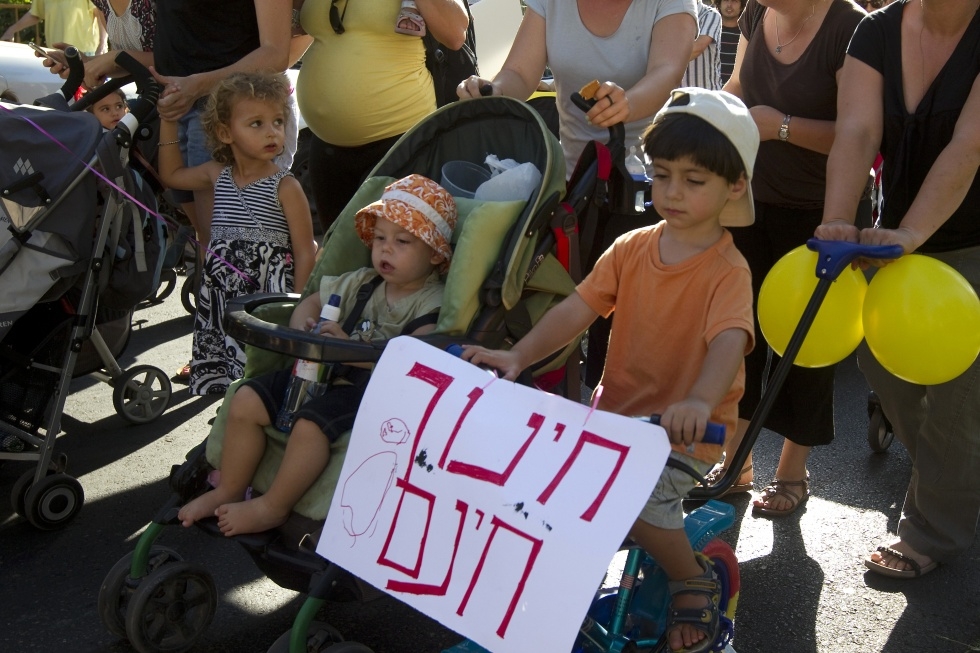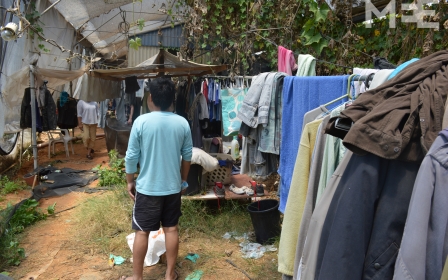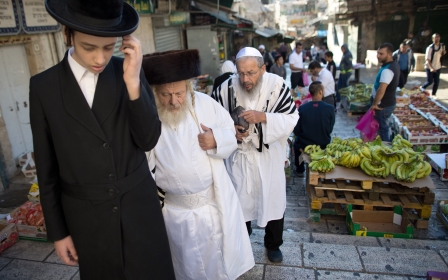The sour taste of milky pudding: The cost of living in Israel
Published date: 13 February 2015 01:45 GMT
|
Last update: 9 years 9 months ago
A Facebook post about cheap prices in Berlin has initiated a heated controversy in Israel. The cost of living had only a small part in it

“Milky” is the name of a popular Israeli dairy pudding, sweet white cream on the top, brown chocolate pudding on the bottom. It is also the name of the hottest political discussion in Israel, one which began from the high cost of living and ended with the very foundations of Zionism, touching on questions dealing with social justice, occupation and the war on Gaza.
The current round of discussions began early this week, when a group of Israelis living in Berlin posted on Facebook the receipt of their morning visit to the local grocery store. The highlight was the price of a cup of milky-like pudding: 0.8 shekel ( 0.19 Euro) in Berlin compared to 4 shekels in Israel. Orange juice, once a symbol of Israeli agriculture, costs in Berlin less than half its price in Tel Aviv. On average, prices were double.
Senior economists and businessmen from the retail sector hurried to explain that the comparison was flawed and meaningless, but for many Israelis, the Berlin receipt was a reminder that life in Israel is unbearably expensive. It also echoed a sensitive cord in Israeli society. Three years ago, at the summer of 2011, Israel experienced its largest demonstrations ever, when hundreds of thousands of Israelis went to the streets, chanting slogans like, "the people wants social justice" and "here comes the welfare state."
These demonstrations were a kind of revelation for the civil society in Israel, which traditionally has been very weak. It [civil society] suddenly became aware of its ability to protest, to ask for change. But the tangible results, like what happened with sister- protests in Spain or Occupy Wall Street which took place at the same time, were meagre. The government did not change, the welfare state did not recover and the prices remained high.
The authors of the post from Berlin aimed exactly at this feeling of frustration, born from the failure of the 2011 protests and strengthen by the coming 2015 budget, where the army will get an increase of 6 billion shekels ($1.7 bn) and social services will get almost none. Staying in Israel, they wrote on their Facebook page, is "depriving you and your children from food, education and housing… living in Israel is a continuous economic abuse. See you in Berlin!"
This is, of course, a premeditated challenge to Israeli society. Emigration from Israel is nothing new, and more than one million Israelis emigrated to the United States, Europe and elsewhere over the last sixty years. But those emigrants never boasted about their decision, they were held in disrespect, if not as traitors of Zionism. Immigration to Israel is called Aliya (climbing), as if you raise yourself coming to the Holy Land. Emigration out of Israel is called Yerida (descending). To proudly emigrate to Berlin, with all its meaning in the Jewish and Zionist history, is almost a sacrilege.
It is estimated that some 40,000 Israelis are living in Berlin, most of them coming in the last decade. It has become kind of vogue among young urban Israelis. Mati Shemoelof, a writer and a poet who moved to Berlin a year ago, is aware, of course, of the historical meaning of living in Berlin, but claims that it is not done out of defiance. "There are more possibilities in Berlin, it is the cheapest city in Central Europe and a preferred destination for immigration from all over the world, not only from Israel." Getting a visa to stay in Germany a relatively easy, he explains.
Boaz Arad, an Israeli journalist now living in Berlin, published an article this week in Haaretz titled "Why did we leave for Berlin (and it's not the Milky)." He names the functioning public transportation, the strong social network, free education, affordable housing, rent fares controlled by law, decent working conditions "and not less important: no one pokes his nose in your private life, demanding you an explanation why your spouse is not Jewish or why you don't have a spouse."
But this is just a part of the story. According to Shemoelof, many of the Israelis coming to Berlin in the last decade were formally political activists in Israel. In Berlin, he says, they find themselves in fraternity with immigrants from all over the world. At the demonstrations against the last war on Gaza, Israelis marched along Palestinian or Iraqi or Kurdish protesters. "Berlin has become a city of refuge,” he adds.
While Israelis living in Berlin do not relocate out of defiance, Shemoelof is aware that in Israel this emigration is conceived as "a metaphor for Jewish existence outside Israel." According to Zionism, Jewish life could be fulfilled only in Israel. Israelis can swallow the fact that millions of Jews are living in Britain or France or the United States, says Shemoelof. But it is harder for them when they see people who are born in Israel emigrate freely and proudly, especially when Berlin is concerned.
Just a year ago, Finance Minister, Yair Lapid, whose father survived the holocaust, attacked those Israelis who are "ready to throw to the garbage the only country the Jews have because it is easier in Berlin." The reactions this time were not less harsh. The Israeli immigrants to Berlin were called liars, weak, anti-Zionists and even traitors. The authors of the Facebook page which started the debate were unashamed. They called for 300,000 Israelis to "climb," meaning to emigrate to Berlin. Only if we leave Israel, they say, the government there will understand the crisis. Emigration has turned into a political tool.
This Facebook page is more than an anecdote. In the last weeks following the war on Gaza, voices calling for emigration out of Israel as the only political choice left for "normal" Israelis, are heard again and again. The most prominent was an article by Rogel Alper, a columnist in Haaretz titled, "I must leave this country." The religious-messianic right is getting stronger, the battle to end the occupation is hopeless and now, after Gaza, it has become dangerous to stay in Israel. "You cannot lead a good life here," wrote Alper, "you can die here, you can find a shelter, and you may just leave."
Shemoelof sees a pattern leading from the failure of the 2011 protests, the re-election of Benjamin Netanyahu as prime minister, the last war on Gaza and the current discussion about milky prices and emigration to Berlin. "There is a feeling that Israel is falling apart," he says, citing some recent Israeli books about a coming apocalypse, "the future looks dark."
It is too early to say if emigration out of Israel will become a large movement, will it pose a real challenge to the ruling parties. Most of these new proud emigrants are coming from the ranks of the left, so the current government may even rejoice in it. But they also represent the future elites of Israel, and no government will be happy to see them rend their services to countries other than Israel. What is clear is that the whole milky story, with all its ramifications, is another sign of the growing despair creeping into ever widening sectors of Israeli society.
- Meron Rapoport is an Israeli journalist and writer, winner of the Napoli International Prize for Journalism for a inquiry about the stealing of olive trees from their Palestinian owners. He is ex-head of the News Department in Haaertz, and now an independent journalist.
The views expressed in this article belong to the author and do not necessarily reflect the editorial policy of Middle East Eye.
Photo credit: An Israeli child holds a sign reading in Hebrew, "Free Education" during a "strollers march" on July 28, 2011 in the coastal city of Tel Aviv as protests over the high cost of living spread throughout Israel (AFP)
New MEE newsletter: Jerusalem Dispatch
Sign up to get the latest insights and analysis on Israel-Palestine, alongside Turkey Unpacked and other MEE newsletters
Middle East Eye delivers independent and unrivalled coverage and analysis of the Middle East, North Africa and beyond. To learn more about republishing this content and the associated fees, please fill out this form. More about MEE can be found here.





